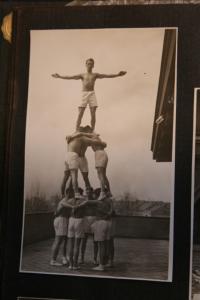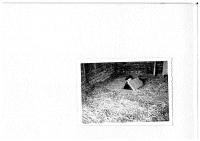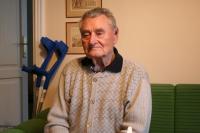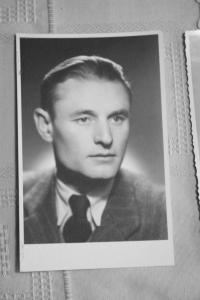„One needs to fight against the evil, and I would even join the devil in order to do so.“

Stáhnout obrázek
František Hovora was born August 7, 1914 in Pardubice. He was brought up only by his father, because his mother had died soon after giving birth, but his father died when František was only four years old. He thus grew up with his brother and stepmother, whom his father had married after the death of his first wife. František loved sports since he was a young boy, and he became an active member of the Sokol organization. He studied at trade academy. The family‘s financial situation improved after he found employment in a shop selling carpets and linoleum. However, he had to join the army in 1936. He served in eastern Slovakia for two years, but due to the aftermath of the Munich conference in 1938 he eventually had to stay in the army half a year longer. After the mobilization, his unit was transferred to a place near Bratislava. After the declaration of the Protectorate of Bohemia and Moravia he became involved in the resistance movement against the Nazis. He established contacts with a group of employees from a local insurance company where his stepmother worked. Other resistance fighters came from the Sokol organization.In June 1942 František Hovora provided a hiding place for Jiří Potůček, a radio operator from the group Silver A He brought food for Potůček and helped him with radio transmissions to London sent from the transmitter Libuše. After the assassination of Heydrich and the destruction of the village of Lidice, the situation became critical for the resistance fighters. František Hovora spent the following three years hiding in the house of Míč family, an evangelical family living in the village Brambory in the foothills of Železné Mountains. The Míč family had provided food for him and Potůček before. Hovora left his girlfriend in Pardubice. His stepmother was executed in Zámeček in Pardubice after Heydrich‘s assassination.After the war, František returned to his native house in Pardubice, which had been looted. As a form of compensation, he was offered a job as a state administrator in a store with carpets and linoleum in Karlovy Vary but dismissed from this position after February 1948. The Secret Police interrogated him several times because of this job and the aid he had been providing to „western“ paratroopers. He then worked as a buyer in the Tesla factory in Pardubice. After his retirement he continued living in his native house in Pardubice and died on January 9, 2011.



